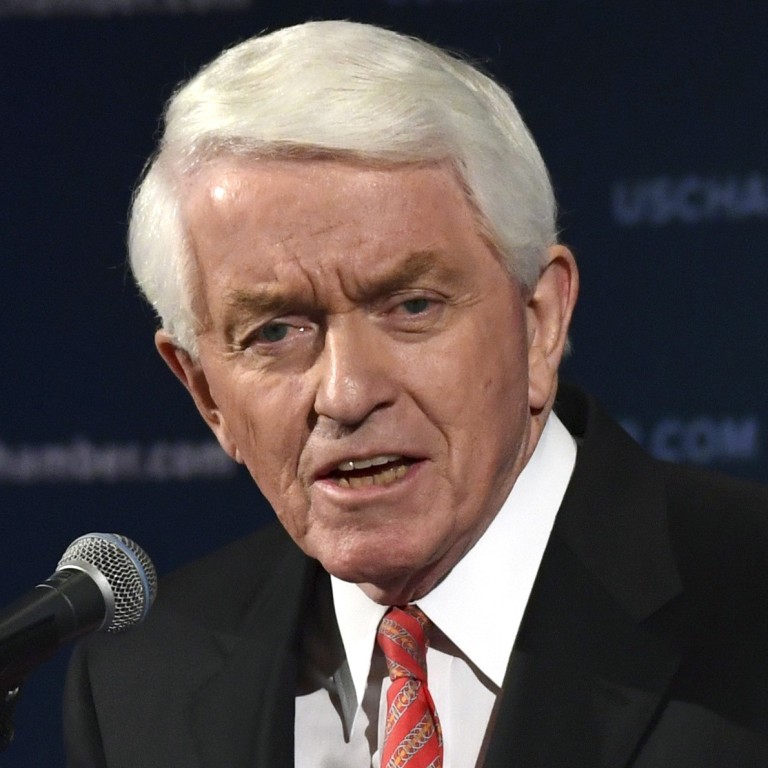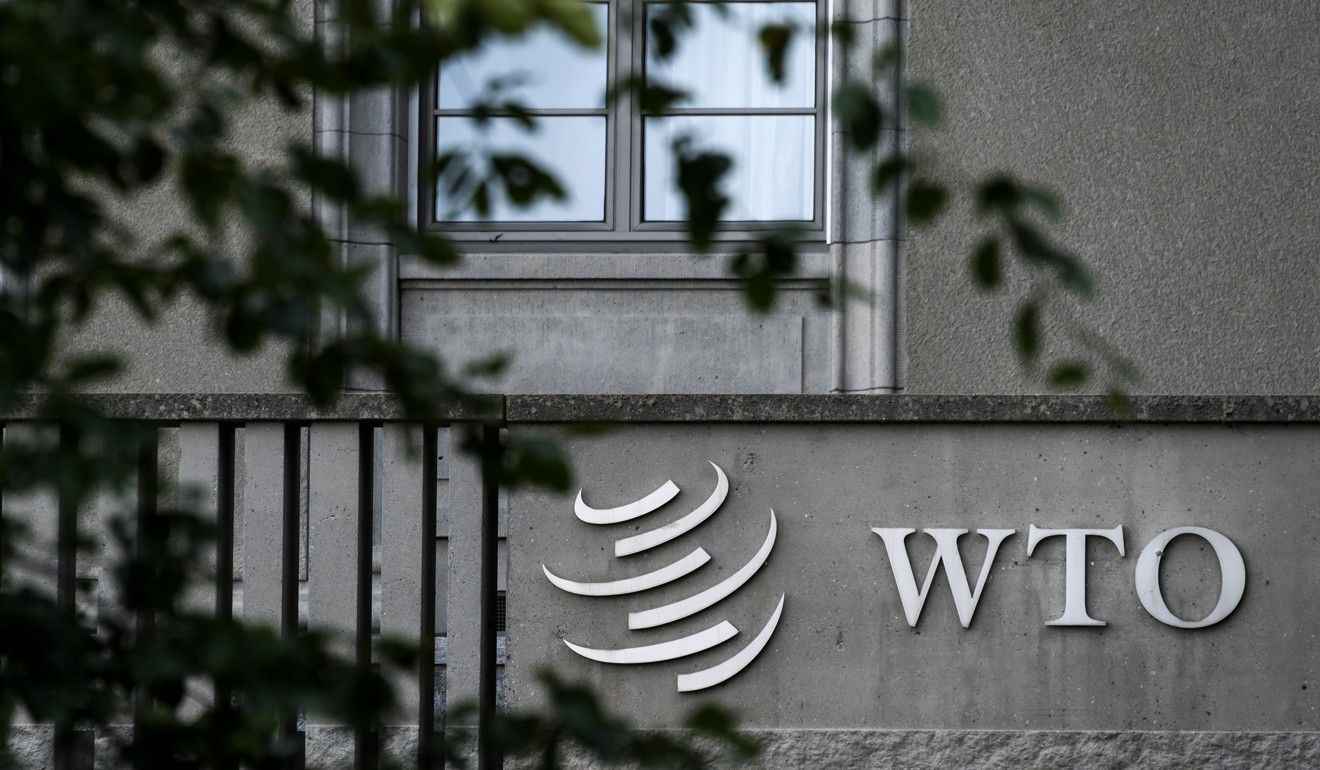
Politico | US Chamber chief Tom Donohue urges Donald Trump to embrace free trade to boost growth
- Business leader urges US president to take steps to rescue WTO’s appeal court from untimely death
- Donohue’s remarks follow three years of Trump trade actions that raise questions about US commitment to rules-based trading system
This story is published in a content partnership with POLITICO. It was originally reported by Doug Palmer on politico.com on January 9, 2020.
The head of a leading US business group urged President Donald Trump on Thursday to embrace free trade principles to ensure the United States remains strong and prosperous and to take steps to rescue the World Trade Organisation’s appellate body from an untimely death.
“Engaging with the world is our best strategy for strong national security and lasting prosperity,” US Chamber of Commerce CEO Tom Donohue said in his annual State of American Business address.
“Embracing free trade doesn’t mean ignoring unfair practices aimed at us. It means leading the way in setting the rules and enforcing them, based on the simple propositions that more trade is better than less trade, more customers are better than fewer customers and expanding markets globally will benefit everyone,” he added.
The business leader's remark follows three years of Trump trade actions that raise questions about the US commitment to the rules-based trading system that it helped create after World War II.
Donohue argued that US openness was a source of strength and warned against the risks of retreating from global rule-making.
“America must be involved, not isolated,” he said. “We must set the pace, in an open and collaborative manner, for global engagement – not only in trade, but also finance, technology, intellectual property, investment, environment and the rule of law.”
Trump has brushed off rarely used powers to unilaterally impose tariffs on steel and aluminium imports that he said pose a threat to national security.
US firms and consumers, not China, paying for Trump’s tariffs
He also threatened to withdraw from the North American Free Trade Agreement to pressure Canada and Mexico into negotiating a new deal that the Congressional Budget Office estimated would effectively reimpose tariffs on many car imports from those countries.
That tough approach has produced some success, including in talks with Beijing, which Trump has hit with tariffs on about US$370 billion of Chinese exports to the United States.
Next week, Chinese Vice-Premier Liu He will visit Washington, where he and Trump will sign a phase one trade deal paving the way for increased Chinese purchases of US farm goods.
Beijing also has agreed to new disciplines on currency practices, intellectual property protections and forced technology transfer as part of the pact.
Despite that progress, “there’s still a long way to go” to balance the trading relationship, Donohue said. “Phase two must address Chinese trade and industrial policies that put American businesses at a competitive disadvantage. It is in both nations’ interests to resolve those issues and restore our commercial relationship.”
Donohue also warned the tariffs that Trump imposed on Chinese goods to pressure Beijing – which largely remain in place – are having a negative impact on many American businesses and consumers.
Can 2020 be the year of ‘developmental diversity’, not US-China decoupling?
In a speech on Wednesday night to the China General Chamber of Commerce, Beijing’s ambassador to the United States, Cui Tiankai, touted recent steps China has taken to open its market for more trade and investment. He also expressed hope for better relations with the Trump administration in 2020.
“In the new year, we hope that no matter how America’s domestic politics may change, its real statesmen will keep to rational and practical China policies, reject extreme rhetoric such as ‘decoupling’ and ‘new cold war’ and work with China towards a relationship based on coordination, cooperation and stability,” Cui said.
Turning to the multilateral trading system, Donohue said he hoped the US would engage with other members to salvage the WTO’s appellate body, which has largely ceased to function because of the Trump administration's refusal to allow the appointment of new judges as old terms expire.

The United States has taken that hard-line stand because it believes many appellate body rulings, especially in regards to the use of anti-dumping duties, have imposed new obligations on the US that it did not agree to accept in negotiations.
Donohue argued that the United States has benefited from the WTO and that the Trump administration should be taking action to build it up.
“Its rules protect American business from unfair treatment and protectionism,” Donohue said.
“Safeguarding this institution and its dispute settlement system should be an urgent international priority. Let’s not shutter the WTO appellate body. Such drastic action doesn’t serve America’s interests.”
The business leader praised US House passage of the US-Mexico-Canada Agreement, which the Senate is also expected to approve in coming weeks.
And he called for similar high-standard trade pacts with Britain and the European Union, Japan, Brazil and emerging markets in Africa, and stressed the importance of US engagement in the booming Asia-Pacific region.

